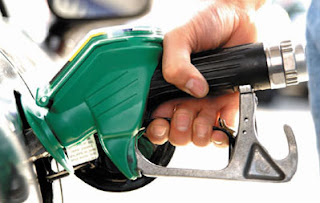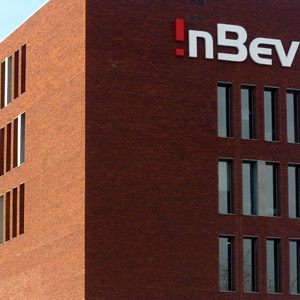Tuesday 27 November 2007
Second break!
Saturday 24 November 2007
Big loss for English economy by fail to qualify for Euro 2008
Because England doesn’t succeed to qualify for the Euro 2008 football tournament, the English businesses could miss out 2 billion pound experts said.
Especially sport stores, bookmakers and pub groups are the big losers to feel the financial chill after the defeat by Croatia.
When England participate in a major summer tournament such as the World Cup or the European Championships the economic boosts with 650 million pound according to analysts.
A sport consultant predicted that the total sales of replica shirts could be 100 million pound lower next year.
Bookmakers said that the absence from Euro 2008 would cost at least 250 million pound. They said that a major football tournament without England will be like Christmas without turkey. There simply won’t be the interest levels.
The profit of Umbro, the England Football team’s official kit maker, is expected 15 million pound less. Because they need to give discounts to the England shirts. Last year Umbro sold 4 million shirts, but the poor performances of England under the lead of Steve Mclaren meant that only 1 million shirts have been sold by September.
Profit at Sports Direct, a retailer, is contracted to buy 65% of all England shirts made by Umbro, but has struggled to sell them. They will loose 10 million pound as a results of England’s nonqualification.
TV advertisements revenues could fall by 10 million pound because of the likely lower audience.
source
(Tom Van thienen)
Friday 23 November 2007
Our Second Podcast!
Our second Podcast!
http://rapidshare.com/files/71657302/Podcast2.mp3.html
For people who are not that technological-minded:
click on the URL
Scroll down and click on "free"
and then you must show that you are valid user!
Thursday 22 November 2007
Profit of Roularta increase by taking over Express-Expansion.
 Media company Roularta has generated in the 3th quarter 34.8% more turnover. This is the result of the taking over of the French Group Express-Expansion. The turnover of Roularta in the period July-September was 151,1 million Euro. Last year it was “only” 112,1 million. Most of this grow comes from Print-division, and also thanks to the taking over of the French Group.
Media company Roularta has generated in the 3th quarter 34.8% more turnover. This is the result of the taking over of the French Group Express-Expansion. The turnover of Roularta in the period July-September was 151,1 million Euro. Last year it was “only” 112,1 million. Most of this grow comes from Print-division, and also thanks to the taking over of the French Group.The products of Roularta grew with 1.5%. Other reasons of the turnover increase are the taking over of some small magazines. Like a Dentist paper, Pharmacy paper, …. The best original product is the free newspaper, “De Zondag”.
According to Roularta, there is a lot of pressure on the Belgium and French market. The audiovisual media has grown with only 2%, this is not much. The reason is the failing of the distribution contract with Carrefour. It was especially VMMa (VTM and KanaalTwee and Q-music) that grew a lot, 9.1%.
The results of radio station 4FM are not that good. But Roularta hasn’t got yet some prospects. The prospects of Television and Radio are good.The advertising market in Belgium is doing better than in French. In French the social climate has a negative influence on the money for advertising.
Source: http://www.hln.be/hlns/cache/det/art_661256.html?wt.bron=categorieArt4
(Bram)
Tuesday 20 November 2007
The Belgian consumer is losing his faith in the Belgian economy.
 The belgian consumers faith has been fallen abruptly in november and is standing at the lowest level since december last year. The consumers especially lose their faith in the grow of the belgian economy in the next months.
The belgian consumers faith has been fallen abruptly in november and is standing at the lowest level since december last year. The consumers especially lose their faith in the grow of the belgian economy in the next months.The indicator of the consumers faith is now fallen till minus 8. It has been a long time that the consumers faith was so low, more exactly since december of last year. The consumers think that the perspectives of the economic situation in belgian is extremely weak,and they are very pessimisticabout their own save-capacity for the next months.
A thing that looks very optimistic according to the consumers is the perspective of the labour market. It raised against october, but decreased against the start of this year.
The national bank says that it is the first time that their is such a large decrease without a specific political or economical event, but i think that the difficult negotiations about the forming of the Belgian government is a influential factor to the indicator.
The national bank also says that possible factors are the raising prices for alimentation and petroleum-products and the reports of an international credit-crisis and the impact of it on the stock-exchange.
I think that when the political situation in Belgium is solved, the indicator will slowely raise again, but the high oil prices will keep the indicator low.
SourceMonday 19 November 2007
30 billion euro in three years

Volkswagen, the largest car concern of Europe, will invest the following three years about 28.9 billion euro in new models and factories, to realize the necessary increase. The Supervisory Board of the company from the German Wolfsburg approved the investment program last week.
With about 13.8 billion euro the product range will be broadened with new models and the modernization of existing models. Moreover 7.1 billion goes to factories, among other things in Russia and India. In these “increase markets” the cars will be built.
Volkswagen wants to build more than ten millions cars per year in 2018. This year there will be more than 6 million and in 2006 there were 5.7 million. Volkswagen wants to exceed the most successful car dealer Toyota.
They want to introduce in the coming three years twelve new models, to raise sale up to eight millions carriages in 2010.
Also they will invest in innovative technology and new factories.
At the new models the compact SUV “Tiguan”, a remake of the sport-loving Scirocco and a new version of the Golf (the best selling model of the mark).
Now we have to wait what the consequences are for Audi will be.
Thursday 15 November 2007
EU to impose tariffs on China’s products

Europe is to reinforce its tougher line against China by following the US in slapping tariffs on Chinese products that benefit from alleged subsidies.
The EU governments and some industries are supporting the slapping tariffs because the growing trade deficit with China is increasing 20 million $ an hour.
Some ways to achieve that are to ex-officio initiation of investigations.
Another way can be more anti-subsidy actions, for example: let the goods that are coming from China pay more taxes so that they have the same price or even more expensive than our own goods. The EU has avoided so-called “countervailing duties” in the past because by designating China a “non-market economy” it accepts that prices there are not set by free competition, making it hard to put a value on soft loans or benefits given to state-controlled enterprises.
However, Mr Mandelson proposes to use the measure against companies that have received “market” status in previous anti-dumping actions, for which more information is available.
The most sensitive anti-dumping cases have split national governments, often between the
liberal north, dominated by retailers, and the south, which has a strong industrial base.
Source
(Tom Van thienen)
Wednesday 14 November 2007
A bonus don't make a difficult job more attractive
 The VDAB has a list with bottleneck-jobs, and who educates himself for one of those jobs can have a bonus till the end of this year. This bonus is between 150 and 250 euros.
The VDAB has a list with bottleneck-jobs, and who educates himself for one of those jobs can have a bonus till the end of this year. This bonus is between 150 and 250 euros.But the bonus doesn't have success: less than one percent educates him in bottleneck-jobs for the bonus. As a reaction on this news the minister of work, Frank Vandenbroucke, has abolished the bonus. The budget will go to other boosts to follow an education.
The problem is that the number of the bottleneck-jobs is increasing. "It's normal that with a booming economy, the bottleneck-jobs will feel it first." says Ward Verhaeghe of the ministers cabinet. "On the other side, the number of jobs where they find an adequate candidate is hiher than ever. A problem is that the government doesn't know if the people who have followed an education, also work in the sector. 1 out of 5 avoidances doesn't find an adequate candidate.
"We have to enlist people of the foreign countries. These people can follow a language-class on the workfloor, there is no other solution." says Ward Verhaeghe
I think that the govenrment choses the simpliest solution. They can look to other solutions, instead of importing foreigners
Source
Monday 12 November 2007
Expensive oil delivers the government 11 million extra!

De oil prices keep on growing, but the taxes won’t decrease. Because of this, the government gets 11 million euro more! But the pressure is coming to decrease the taxes.
Last week, the oil price reached a new record, 1.252 euro/litre. Many people give comment because the government won’t decrease the taxes on the fuel prices.
The 11 million euro is only the extra income on the diesel prices. The profit on the petrol is not calculated in those 11 million euro. But the taxes on the bio fuel are also taken in the extra income. The total extra turnover of the bio fuel taxes is 2.2 million euro. So we are paying extra money for a product (bio fuel) that not exist.
Guy Verhofstadt said that the government will maybe decrease the taxes. But on 1 condition, the price of diesel in Belgium must be higher than the price of diesel in our neighbouring countries. At the moment Belgium has the second highest price, Germany is on number 1. But before the price raise, we had almost the lowest prices, just Luxembourg did better. At the moment, the government has decrease the taxes, but it is only a small decrease. If we fill our car, we only get 1 euro discount.
If we believe the secretary of the BPF, the 11 million euro is not the total sum of revenue. Apparently it must be more, but the BPF won’t give the correct number of money.
Source
(Bram)
A fall of the economic growth for 2008

The driving force behind the reduced increase remains the private consumption. The internal question remains strong, thanks to the high employment. Moreover there is the positive pulse of the rising economies. The lower increase in the US (2.1 percent in 2007) on the other hand has become a slowing down factor.
For the period 2007-2009 the EU-Commission expect 8 million of new jobs and a fall of the unemployment up to 6.6 percent in 2009.
In comparison with the previous years there is much more uncertainty. Not only there is the disorder on the financial markets, there is the spectacular increase of the oil-price.
The public debt its dive, however, will continue. Between 2006 and 2009 it will decrease with approximately 5 percent points and still only 63.4 percent to amount to. In the complete EU the objective of maximum 60 percents debt would be already obtained in 2007.
Sunday 11 November 2007
Peking stops the export of dangerous toys
 The Chinese autorities have decided to stop the export of dangerous toys. They made the decision to stop the export of 'Aqua Dot' after that two kids got in a coma because they swallowed a pearl of 'Aqua Dot'.
The Chinese autorities have decided to stop the export of dangerous toys. They made the decision to stop the export of 'Aqua Dot' after that two kids got in a coma because they swallowed a pearl of 'Aqua Dot'.The pearls are produced in China, but it's a canadian company why distributed it, namely 'Spin Master'. The Americzn government removed already 4,2 million units out of the horizontal bars. Nobody knows which substantion contains the poison, which makes it more dangerous.
Also in Australia are three kids adopted in the hospital after getting unconscious because of swallowing the same pearls.
America have also removed 400.000 other product who came out of China, namely toycars and robots. This was mostly because they contained to much lead or had a mistake in the manifacture.
I think that it is a shame that products which contains a poisson, can be exported whitout being controlled, especcialy when it is meant for litlle kids. It think th at it also isn't good for the 'toy-economy' of China. The countries who import toys from China can lose their faith in the Chinese products, and stop to import them, which can have a lot of consequences.
Source
Saturday 10 November 2007
Bank holds rates despite further signs that housing boom is over
 For the first time in 2.5 years house prices drops 2 months in a row.
For the first time in 2.5 years house prices drops 2 months in a row. This month house prices tumbled by 0.5% after it tumbled 0.6% in the previous month.
However the Bank of England kept rates on hold at 5.75%
A report of Halifax showed that the annual rate of house price inflation dropping back into single figures, to 8.9% from 10.7% the previous month.
If the trend continuous, prices would fall in real terms over the coming year. The growth will be 1.2% per year and that is below the inflation.
The interest from new buyers in purchasing a house fell by 6%.
The recent oil prices, that peaked this weak for the first time over 98 dollar a barrel, highlights the nagging risk of a renewed burst of inflation.
Also the increases of other goods, such as food are reinforcing inflationary worries.
A majority of economist still believe that lower interest rates are coming for next year as an effect off a weakening US economy
Although Britain’s economy grew at a buoyant 3.3 % in the third quarter, inflation in September on the consumer prices index stood at only 1.8%.
Source
(Tom Van thienen)
Monday 5 November 2007
The price of beer is again going up!
 Inbev the biggest beer producer in Belgium will raise the price of his products with 3% starting from February 1st. This means that we as customers will have to pay 5 to 10 eurocent more for a lager.
Inbev the biggest beer producer in Belgium will raise the price of his products with 3% starting from February 1st. This means that we as customers will have to pay 5 to 10 eurocent more for a lager.But why announced Inbev the price increase 4 months ahead? The reason is the cost of the resources that increases. Especially the cost of energy and food is going up. Because of this, they have to raise the price of the beer. Otherwise the profit will go down.
Not every price will increase the same. There are differences, Jupiler in the bottle and in the can will increase 3.5%. Whereas the price of the Hoegaarden remains the same. When al of this is completed, there won’t be any difference between beer at home as in the pub.
The price increase will come on the head of the customers. They will feel the price increase, because when the owners of restaurants and pubs won’t change the price, they won’t survive. As the beer producer increase the price, than the sellers of those products have not a choice. They must follow Inbev and increase their prices also.
Normally the price will increase with 5 eurocent, but sellers do not calculate with prices under the 10 eurocent. So starting in February the price will increase with 10 eurocent.
At the moment it is only Inbev, the concurrent Alken-Maes and De Koninck will not follow. But this will only take some time, everybody will change their prices.
Source
(Bram)

People especially provided concerning virtual security...
They are more worried about their security online and the financial threats, such as credit card fraud and abuse of personal information.

For Belgium the index stands on 131, what indicates an average level of unsafe (especially concerning their financial, personal and online security). The Germans make has a general score of 160. The English keep track of them with a score of 138. In France (83) their are less concerned concerning their security, followed by the Italians (90) and the Dutch people (98).
The Belgians are most afraid concerning the security of their information and their security online. The Belgians are the most worried Europeans concerning the online security.
Where average only 30 percents of the Europeans find that the online security is very important, is that in Belgium average 41 people to 100.
The Belgians are just as afraid of being infected by viruses, spyware or spam, as for unsafely online shopping or online banking.
Even 29% is extremely afraid that others would have access to their personal information.
Of the Belgians there is 34% extremely worried concerning fraud with their credit cards and bank accounts. At the Italians is that 14%. Kindest 44% of the Germans are very worried concerning fraud with their financial data, And that makes them the most agitated Europeans if it concerns protecting information.
Source
(Jonas)